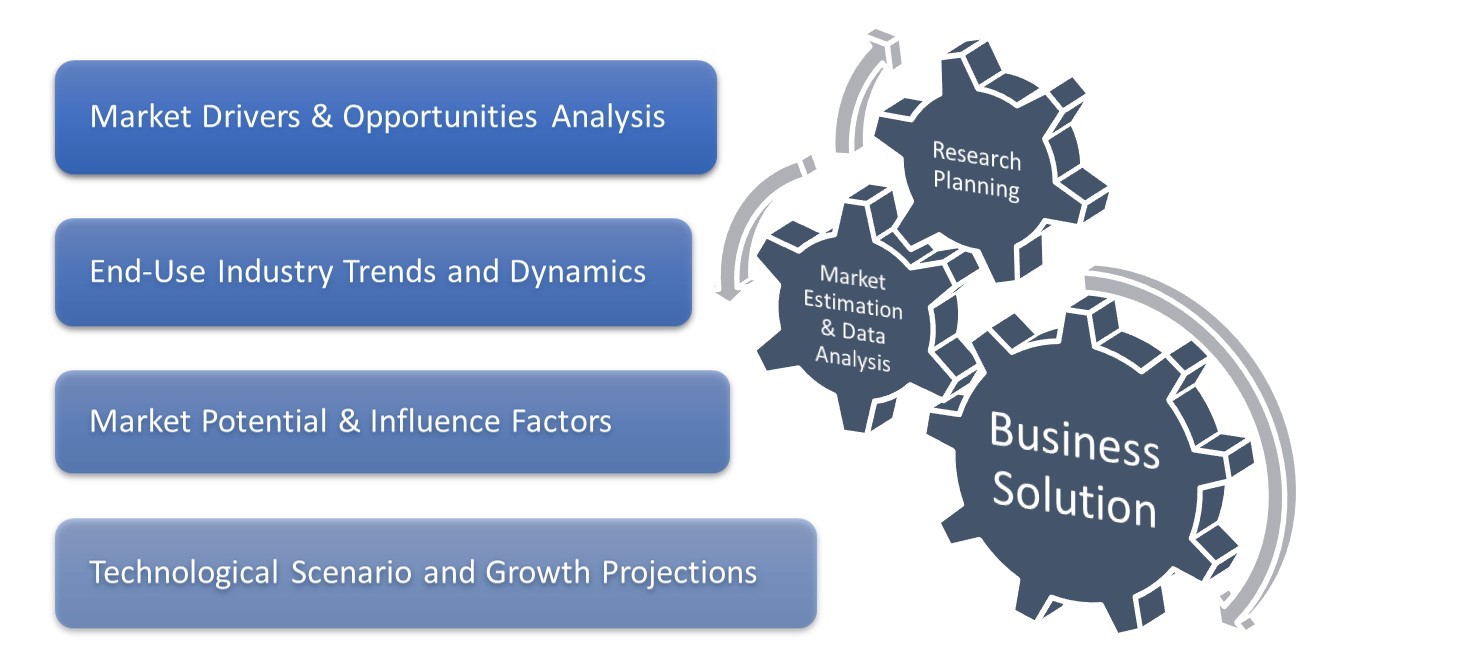This report focuses on the global Aerial Ridesharing status, future forecast, growth opportunity, key market and key players. The study objectives are to present the Aerial Ridesharing development in North America, Europe, China, Japan, Southeast Asia, India and Central & South America. The key players covered in this study Uber Technologies BLADE Airbus Voom Vahana ... Market segment by Type, the product can be split into eVTOL Helicopter Others Market segment by Application, split into Point To Point (P2P) Business To Business (B2B) Business To Consumer (B2C) Market segment by Regions/Countries, this report covers North America Europe China Japan Southeast Asia India Central & South America The study objectives of this report are: To analyze global Aerial Ridesharing status, future forecast, growth opportunity, key market and key players. To present the Aerial Ridesharing development in North America, Europe, China, Japan, Southeast Asia, India and Central & South America. To strategically profile the key players and comprehensively analyze their development plan and strategies. To define, describe and forecast the market by type, market and key regions. In this study, the years considered to estimate the market size of Aerial Ridesharing are as follows: History Year: 2015-2019 Base Year: 2019 Estimated Year: 2020 Forecast Year 2020 to 2026 For the data information by region, company, type and application, 2019 is considered as the base year. Whenever data information was unavailable for the base year, the prior year has been considered.
This research study involves broad usage of both secondary and primary data sources. The research process involves the identification of numerous factors which affect the industry, comprising the market environment, government policy, historical data, present trends in the market, competitive landscape, technological innovation, upcoming technologies and the technical progress in related industry, and market risks, opportunities, market barriers and challenges.

Market Estimation
Top-down and bottom-up approaches are used for validating the market size for companies, regional segments along with relevant market segmentations such as product type and application.
This report includes market estimations which are based on the marketed sale price of a product. Further breakdown of product segments, particular market share are formed based on the weightage assigned to every segment, which is derived of their usage rate and average price. The entire probable factors which effect the markets and influence them in a great way are included in this research report; and have been accounted for, studied in-depth and are confirmed through primary research. These are then studies to get the final qualitative and quantitative data. Any of the factors such as the outcome of inflation, economic downfall, and any kind of policy and regulatory alterations and/or other such factors are not accounted for in the market forecast. All of this data is amalgamated and included with thorough inputs and analysis from Gravitas Market Insights is curated in this report.

Along with the previously mentioned approaches, various data triangulation methods, in order to conduct market estimations and market forecasting for the complete market segments are detailed in this report. Key Companies present in the said market are also acknowledged via in-depth secondary research and primary research.
1 Report Overview 1.1 Study Scope 1.2 Key Market Segments 1.3 Players Covered: Ranking by Aerial Ridesharing Revenue 1.4 Market Analysis by Type 1.4.1 Global Aerial Ridesharing Market Size Growth Rate by Type: 2020 VS 2026 1.4.2 eVTOL 1.4.3 Helicopter 1.4.4 Others 1.5 Market by Application 1.5.1 Global Aerial Ridesharing Market Share by Application: 2020 VS 2026 1.5.2 Point To Point (P2P) 1.5.3 Business To Business (B2B) 1.5.4 Business To Consumer (B2C) 1.6 Coronavirus Disease 2019 (Covid-19): Aerial Ridesharing Industry Impact 1.6.1 How the Covid-19 is Affecting the Aerial Ridesharing Industry 1.6.1.1 Aerial Ridesharing Business Impact Assessment - Covid-19 1.6.1.2 Supply Chain Challenges 1.6.1.3 COVID-19?s Impact On Crude Oil and Refined Products 1.6.2 Market Trends and Aerial Ridesharing Potential Opportunities in the COVID-19 Landscape 1.6.3 Measures / Proposal against Covid-19 1.6.3.1 Government Measures to Combat Covid-19 Impact 1.6.3.2 Proposal for Aerial Ridesharing Players to Combat Covid-19 Impact 1.7 Study Objectives 1.8 Years Considered 2 Executive Summary 2.1 Aerial Ridesharing Market Perspective (2015-2026) 2.2 Aerial Ridesharing Growth Trends by Regions 2.2.1 Aerial Ridesharing Market Size by Regions: 2015 VS 2020 VS 2026 2.2.2 Aerial Ridesharing Historic Market Share by Regions (2018-2019) 2.3 Industry Trends and Growth Strategy 2.3.1 Market Top Trends 2.3.2 Market Drivers 3 Competition Landscape by Key Players 3.1 Aerial Ridesharing Revenue by Players (2019-2020) 3.2 Aerial Ridesharing Key Players Head office and Area Served 3.3 Key Players Aerial Ridesharing Product/Solution/Service 3.4 Date of Enter into Aerial Ridesharing Market 3.5 Key Players Aerial Ridesharing Funding/Investment Analysis 3.6 Global Key Players Aerial Ridesharing Valuation & Market Capitalization 3.7 Mergers & Acquisitions, Expansion Plans 4 Global Aerial Ridesharing Market Size by Type (2019-2026) 5 Global Aerial Ridesharing Market Size by Application (2019-2026) 6 North America 6.1 North America Aerial Ridesharing Market Forecast (2019-2026) 6.2 Aerial Ridesharing Key Players in North America (2019-2020) 6.3 North America Aerial Ridesharing Market Size by Type (2015-2020) 6.4 North America Aerial Ridesharing Market Size by Application (2015-2020) 7 Europe 7.1 Europe Aerial Ridesharing Market Forecast (2019-2026) 7.2 Aerial Ridesharing Key Players in Europe (2019-2020) 7.3 Europe Aerial Ridesharing Market Size by Type (2015-2020) 7.4 Europe Aerial Ridesharing Market Size by Application (2015-2020) 8 China 8.1 China Aerial Ridesharing Market Forecast (2019-2026) 8.2 Aerial Ridesharing Key Players in China (2019-2020) 8.3 China Aerial Ridesharing Market Size by Type (2015-2020) 8.4 China Aerial Ridesharing Market Size by Application (2015-2020) 9 Japan 9.1 Japan Aerial Ridesharing Market Forecast (2019-2026) 9.2 Aerial Ridesharing Key Players in Japan (2019-2020) 9.3 Japan Aerial Ridesharing Market Size by Type (2015-2020) 9.4 Japan Aerial Ridesharing Market Size by Application (2015-2020) 10 Southeast Asia 10.1 Southeast Asia Aerial Ridesharing Market Forecast (2019-2026) 10.2 Aerial Ridesharing Key Players in Southeast Asia (2019-2020) 10.3 Southeast Asia Aerial Ridesharing Market Size by Type (2015-2020) 10.4 Southeast Asia Aerial Ridesharing Market Size by Application (2015-2020) 11 India 11.1 India Aerial Ridesharing Market Forecast (2019-2026) 11.2 Aerial Ridesharing Key Players in India (2019-2020) 11.3 India Aerial Ridesharing Market Size by Type (2015-2020) 11.4 India Aerial Ridesharing Market Size by Application (2015-2020) 12 Central & South America 12.1 Central & South America Aerial Ridesharing Market Forecast (2019-2026) 12.2 Aerial Ridesharing Key Players in Central & South America (2019-2020) 12.3 Central & South America Aerial Ridesharing Market Size by Type (2015-2020) 12.4 Central & South America Aerial Ridesharing Market Size by Application (2015-2020) 13 Key Players Profiles 13.1 Uber Technologies 13.1.1 Uber Technologies Company Details 13.1.2 Uber Technologies Business Overview and Its Total Revenue 13.1.3 Uber Technologies Aerial Ridesharing Introduction 13.1.4 Uber Technologies Revenue in Aerial Ridesharing Business (2019-2020)) 13.1.5 Uber Technologies Recent Development 13.2 BLADE 13.2.1 BLADE Company Details 13.2.2 BLADE Business Overview and Its Total Revenue 13.2.3 BLADE Aerial Ridesharing Introduction 13.2.4 BLADE Revenue in Aerial Ridesharing Business (2019-2020)) 13.2.5 BLADE Recent Development 13.3 Airbus 13.3.1 Airbus Company Details 13.3.2 Airbus Business Overview and Its Total Revenue 13.3.3 Airbus Aerial Ridesharing Introduction 13.3.4 Airbus Revenue in Aerial Ridesharing Business (2019-2020)) 13.3.5 Airbus Recent Development 13.4 Voom 13.4.1 Voom Company Details 13.4.2 Voom Business Overview and Its Total Revenue 13.4.3 Voom Aerial Ridesharing Introduction 13.4.4 Voom Revenue in Aerial Ridesharing Business (2019-2020)) 13.4.5 Voom Recent Development 13.5 Vahana 13.5.1 Vahana Company Details 13.5.2 Vahana Business Overview and Its Total Revenue 13.5.3 Vahana Aerial Ridesharing Introduction 13.5.4 Vahana Revenue in Aerial Ridesharing Business (2019-2020)) 13.5.5 Vahana Recent Development 14 Market Dynamics 14.1 Drivers 14.2 Challenges 14.3 Porter?s Five Forces Analysis 14.4 Market Ecosystem and Value Chain Analysis 15 Key Findings in This Report 15.1 Research Methodology 15.1.1 Methodology/Research Approach 15.1.2 Data Source 15.2 Disclaimer 15.3 Author Details
